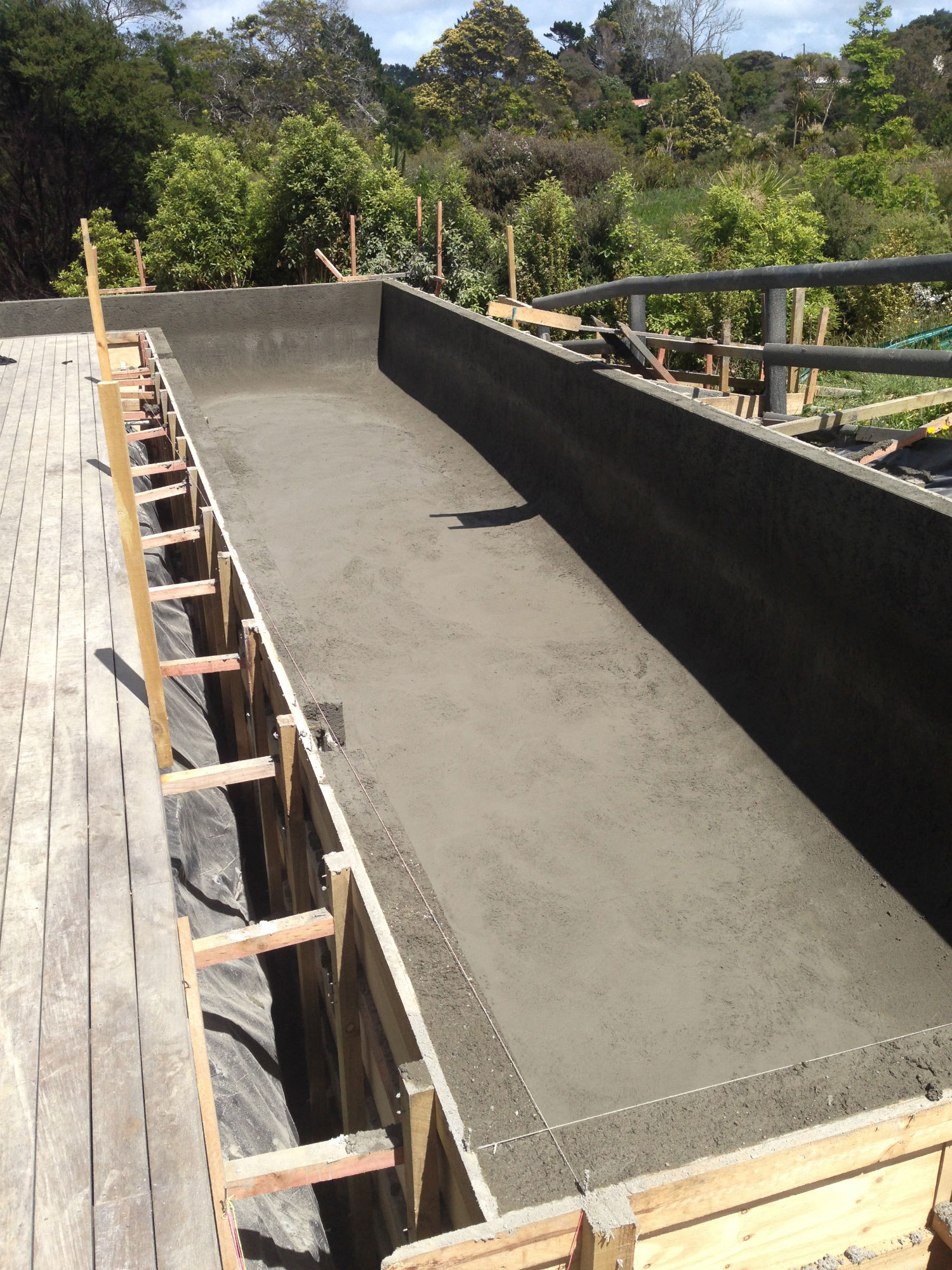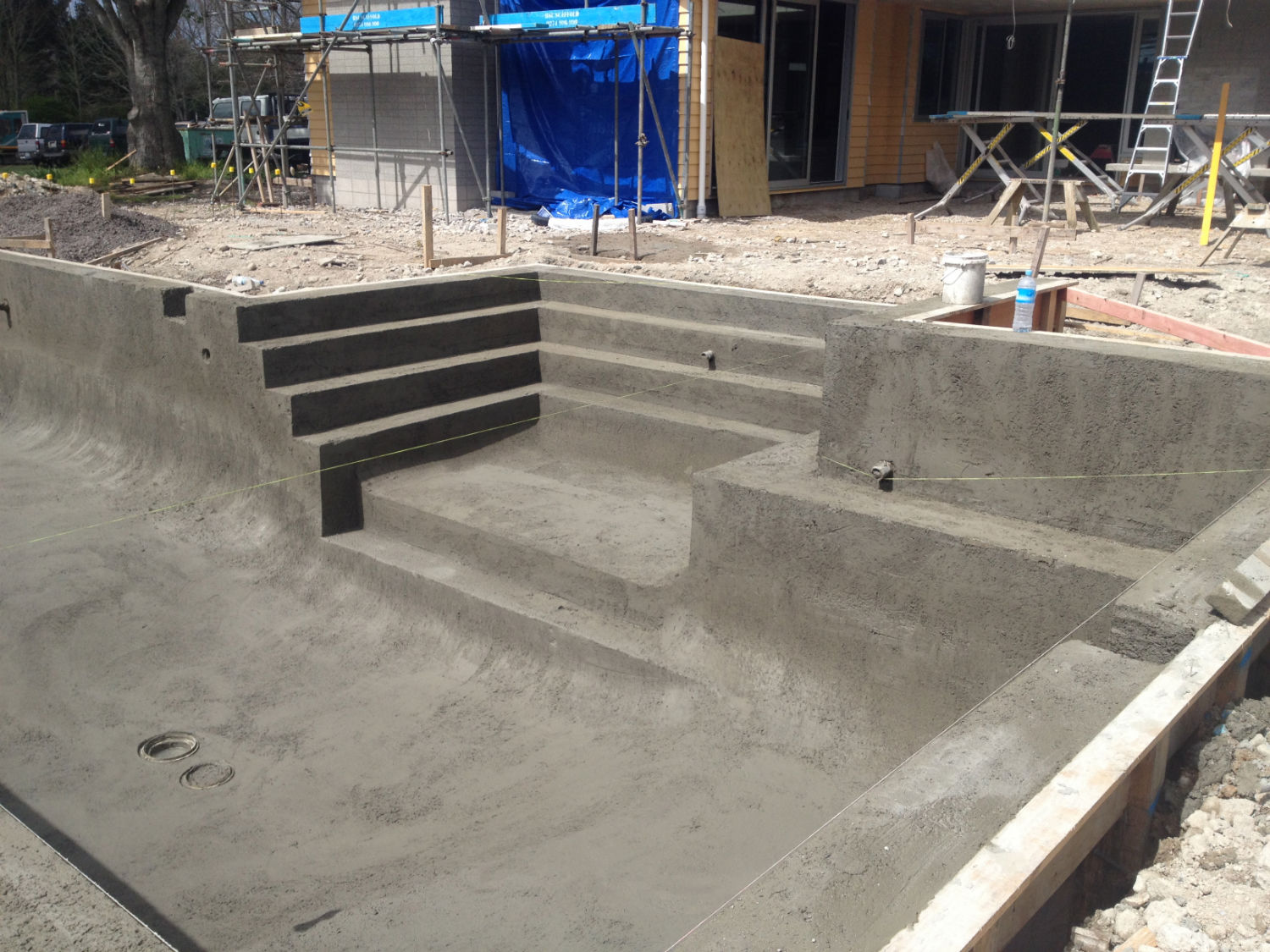Concrete Pools vs Fibreglass – What You Need to Know
Whether it’s to cool down on a summer day, get some exercise in by doing laps, or if you’ve always wanted to host a pool party – installing an in-ground pool in your backyard is a fantastic idea! Deciding which pool to go with is more or less a two-horse race between fibreglass and concrete pools, each with its own benefits and drawbacks. To help you keep your head above water while deciding between the two, we’ve taken a deep dive into the pros and cons of fibreglass vs concrete pools to ensure you come out with the best solution possible.
What Type of Pool is the Most Cost-Effective?
The upfront cost of fibreglass pools tends to be less than their concrete counterparts. This price difference is due to them being pre-made rather than constructed on-site, lowering labour costs significantly. Concrete pools require far more on-site labour, which increases with the complexity of your design, making their upfront cost a little pricier.
However, with fibreglass pools, it’s important to consider the space you’re putting them in. Do you have an oddly shaped backyard? How easy will it be to crane the pool in? Does part of the pool surrounding need retaining? These are all potentially expensive questions that can result in higher-than-expected installation costs.
Maintenance Costs – A Matter of Replacement VS Refurbishment
Pools are a lifetime investment, so you’ll want to consider more than just the upfront cost. The long-term maintenance cost of concrete pools tends to be higher as they require regular treatments and will need resurfacing every 15 years or so.
When considering fibreglass vs concrete pool costs, it’s important to note that old and tired concrete can be given a new lease on life with pool refurbishments and remain in good nick for decades. While fibreglass requires less day-to-day maintenance when problems arise, it’s usually necessary to abandon ship and replace the pool entirely, ultimately leading to a far more costly venture than if you were to go with concrete.
What Type of Pool is More Durable?
Concrete and Fibreglass are both hard-wearing materials that measure their durability in decades, not years. Fibreglass pools are more resistant to daily wear and tear but are susceptible to severe damage, such as pool wall bulging and spider cracks.
Concrete pools are the gold standard of durability. With glowing endorsements stretching back as far as ancient Rome, it’s safe to say concrete pools are built to last. But the concrete industry hasn’t just rested on its laurels for the past few centuries; we are continuing to push the boundaries and redefine what durability means. The latest sprayed concrete techniques have created a far quicker, stronger, and more effective pool.
Installing a concrete pool in your backyard will mean you won’t have to worry about tears or leaks forming when the dog decides to swim a few laps and will guarantee summertime fun for decades to come.
Installing Fibreglass vs Concrete Pools
Fibreglass pools are premanufactured, which means they are ready to go as soon as there’s a hole in the ground. As long as everything runs smoothly, you could be swapping the backyard cricket for summertime swims within a week!
Concrete pools take a little longer to install as they are built on-site from scratch. First, a metal lattice framework must be constructed and sprayed with layers of concrete. Once the concrete has been left to set, the finishing coating of tiles or plaster is applied, and once that’s set, you’re ready to dive in.
While this process takes a little longer, the trade-off is no restriction on design. After all, good things take time!
Flexibility in Shape, Size, and Style
Fibreglass pools are your off-the-rack, premade option. While this cuts costs and saves installation time, you are extremely limited on design and size options. Installing a pool should not be a one-size-fits-all affair, but with fibreglass pools, it has to be. If you find yourself trying to fit a square peg in a round hole when installing a fibreglass pool, it may be time to consider concrete.
Concrete pools are the way to go if control and custom designs are important to you. The only limitation on design is own imagination! Add alcoves, swim-outs, an infinity edge or just about anything you want with ease! Let your imagination run wild and create your perfect little oasis.
Recapping the Pros and Cons of Fibreglass Pools
Pros
- Affordable: Fibreglass pools cost less than concrete.
- Quick Installation: Installation is far quicker and easier.
- Maintenance: Fibreglass pools require less hands-on maintenance.
Cons
- Customisation: Pre-made fibreglass pools limit your design choices.
- Cracks and Leaks: Fibreglass is more prone to cracking and leaking than concrete.
- Repairs: Fibreglass pools often cannot be repaired when damaged, instead needing replacement.
- Size Limits: Fibreglass pools must be transported, limiting pool size.
Recapping the Pros and Cons of Concrete Pools
Pros
- Custom Finish: Concrete pools have no limitations on design.
- Durability: Concrete pools are more durable than fibreglass.
- The Look: There are far more surface finishing options for concrete pools, with a wide variety of colours.
- Damages: Concrete pools are less likely to develop cracks or leaks.
- Size: There is no restriction on the size or depth of a concrete pool.
Cons
- Cost: The installation process of concrete pools drives the price up compared to fibreglass.
- Installation Time: The more complex installation process of concrete pools takes more time than fibreglass.
- Maintenance: Concrete pools require semi-regular maintenance and eventually resurfacing.
Consider Concrete for Your New In-Ground Pool
Custom concrete pools have always been the go-to option when considering an in-ground pool, thanks to their longevity and personalised design. Here at Concrete Pool Systems, we have been carving magic out of concrete and creating dream backyards across Auckland for over 20 years. Get in touch today and dive into your own slice of paradise with a custom concrete pool.


